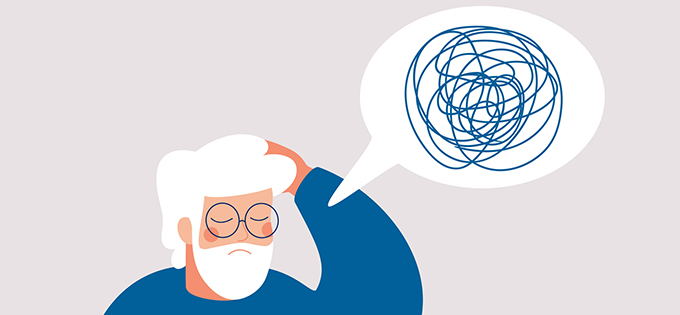Updating your browser will give you an optimal website experience. Learn more about our supported browsers.
How to Stress Less
For some retirees, the transition from career to retirement can feel pretty stressful. These stress management techniques can help!
By Laura Mellett
Experts say learning to identify and manage stress is crucial for overall health.
Ahhh, retirement. A time to kick back and relax — and yet, for many, daily stresses don’t necessarily end when they leave their 9-to-5 jobs.
At TCDRS, surveys indicate our retirees have high retirement confidence, yet stress remains. Members report worries over inflation, taxes and healthcare costs in their golden years.
According to the American Psychological Association, 62% of adults aged 65 and older reported moderate-to-high stress. “Factors contributing to stress in this demographic include chronic health conditions, social isolation and significant life changes like retirement or the loss of loved ones,” says Press Officer James Rivera of the Texas Health and Human Services Commission (HHSC).
Chronic stress can exacerbate health issues like hypertension, arthritis and diabetes, and even speed up the aging process, so understanding how to manage these feelings is crucial for maintaining health and well-being.
One way to manage stress is to first identify its symptoms. Headaches, digestive problems, irritability, heart palpitations, sleep disturbances and poor concentration can all be indicators.
However, since it can be difficult to recognize these symptoms in ourselves, HHSC has started a program called “Turn To”. Participants can complete a free, anonymous “check-in” to identify potential stressors and receive a personalized list of resources.
Once identified, stress management techniques include:
-
Removing the source: If possible, address the cause of your stress. For example, if money sparks anxiety, seek advice on managing your finances or explore benefits and assistance programs.
-
Eating well and staying hydrated: A balanced diet can improve your immune system and reduce the effects of stress, and drinking enough water is essential for maintaining mental sharpness and emotional stability.
-
Exercising: Regular physical activity can lower blood pressure, alleviate arthritis pain and boost your mood. Even gentle exercises like walking or tai chi can significantly reduce stress. According to the CDC, regular exercise reduces the risk of depression in older adults by 30%.
-
Getting enough sleep: Quality sleep is vital for both physical and mental health. Establish a sleep routine that promotes deep, restful sleep to help manage stress and improve your overall well-being.
-
Staying connnected: Don’t underestimate the importance of social connections. Use technology to stay in touch with family or join community groups that interest you.
-
Meditating: Deep breathing, meditation, positive visualization and mindfulness can help calm your mind and reduce physical tension.
If you are experiencing stress and would like support, here are some resources that can help:
-
Texas Health & Human Services (HHSC) offers mental health resources and services for seniors at MentalHealthTX.org and HHSTexas.org.
-
The Substance Abuse and Mental Health Services Administration provides many resources for seniors.
-
The National Council on Aging maintains a rich online library of articles on mental well-being for seniors.
Related Content
Get more information on why TCDRS is a model plan when it comes to retirement.

04.29.2021
How to Keep Long-Distance Friendships Strong
Even under normal circumstances, many Americans struggle with loneliness, which can eventually take a toll on their health, Harvard M...
Read more
11.17.2021
Feeling Isolated? You’re Not Alone
Loneliness is more common than you’d think.
Read more
04.10.2024
How to Count Your Sheep and Fall Asleep
Sleeping gets harder as you age. These tips can help!
Read more